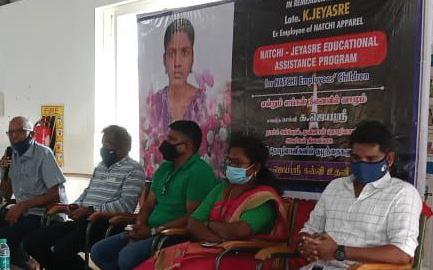
1 minute read
from forced labor Indicators
In September 2022, the U.S. Customs and Border Protection (CBP) removed the Natchi Apparel garment factory, owned by Eastman Exports, from its list of manufacturers banned from importing goods into the U.S. for evidence showing forced labor indicators. In lifting the ban, CBP acknowledged that the Dindigul Agreement provided full remediation of forced labor indicators as defined by the International Labour Organization (ILO).
Enforceable brand agreements including independent unions significantly reduce the risk of and may provide a “safe harbor” from import bans based on forced labor because they meaningfully prevent forced labor and advance FOA. Likewise, they also help companies meet the emerging environmental, social, and governance (ESG) criteria for businesses, in both garment production and consumer countries. The Dindigul Agreement and similar supply chain agreements are also increasingly being seen as a strong risk mitigation measure by investors both in multilateral development banks and private capital markets.
Advertisement
Information on FOA & rights of workers’ to access trade unions being put on the notice board of Eastman Exports by TTCU representatives in late 2022.







